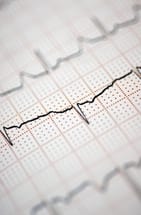Cardioversion
 Cardioversion is a medical procedure used to treat irregular heart rhythm, a condition also known as arrhythmia. Arrhythmia can prevent the heart from pumping enough blood to the rest of the body and eventually lead to a stroke, heart attack or cardiac arrest. Cardioversion helps restore a normal heartbeat through a noninvasive procedure.
Cardioversion is a medical procedure used to treat irregular heart rhythm, a condition also known as arrhythmia. Arrhythmia can prevent the heart from pumping enough blood to the rest of the body and eventually lead to a stroke, heart attack or cardiac arrest. Cardioversion helps restore a normal heartbeat through a noninvasive procedure.
Medication alone is usually not enough to correct arrhythmia. With cardioversion, electric shocks are sent to the heart to stop the abnormal rhythm and restart a normal one. This is done while the patient is under sedation, and is usually performed on an outpatient basis. Most people can go home after the sedative wears off.
After cardioversion treatment, most patients experience a corrected or less abnormal heartbeat, but may be required to take blood thinners and antiarrhythmic drugs to help maintain the new rhythm. Some patients may see their condition worsen after cardioversion, and others can experience stroke or clotting, although these complications are rare.